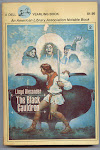From "Ode To a Nightingale," by John Keats:
". . . Darkling I listen; and, for many a time
I have been half in love with easeful Death,
Call'd him soft names in many a mused rhyme,
To take into the air my quiet breath;
Now more than ever seems it rich to die,
To cease upon the midnight with no pain,
While thou art pouring forth thy soul abroad
In such an ecstasy!
Still wouldst thou sing, and I have ears in vain -
To thy high requiem become a sod.
"Thou wast not born for death, immortal Bird!
No hungry generations tread thee down;
The voice I hear this passing night was heard
In ancient days by emperor and clown:
Perhaps the self-same song that found a path
Through the sad heart of Ruth, when, sick for home,
She stood in tears amid the alien corn;
The same that oft-times hath
Charm'd magic casements, opening on the foam
Of perilous seas, in faery lands forlorn."
Keats had tuberculosis and knew he was dying. He wrote his "Five Great Odes" in 1819 and died in 1821 at age 25.
'Severn—I—lift me up—I am dying—I shall die easy; don't be frightened—be firm, and thank God it has come.'
If surpassing this poem is possible, Percy Bysshe Shelley surpassed it with his "Ode To the West Wind." These guys wrote 200 years ago, when English was not yet a dead language.














No comments:
Post a Comment